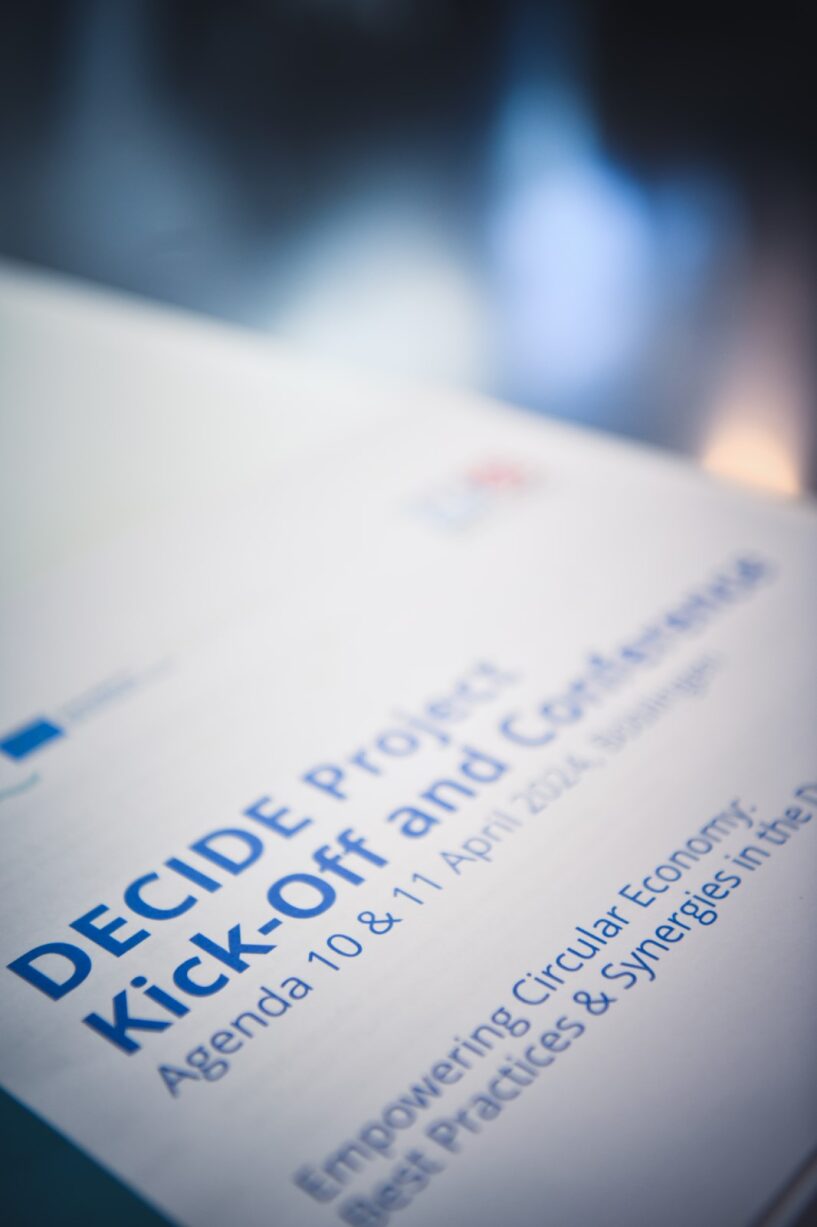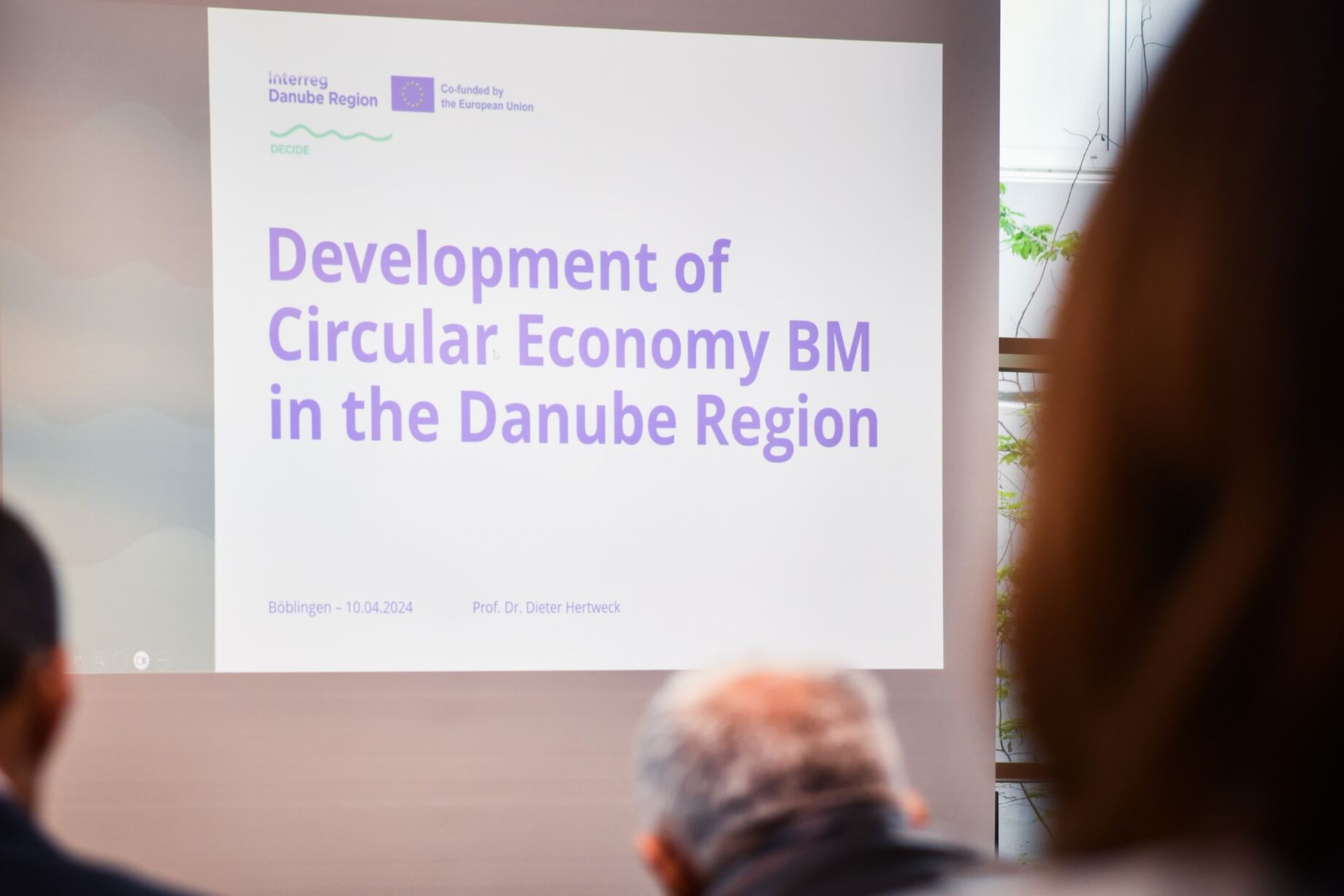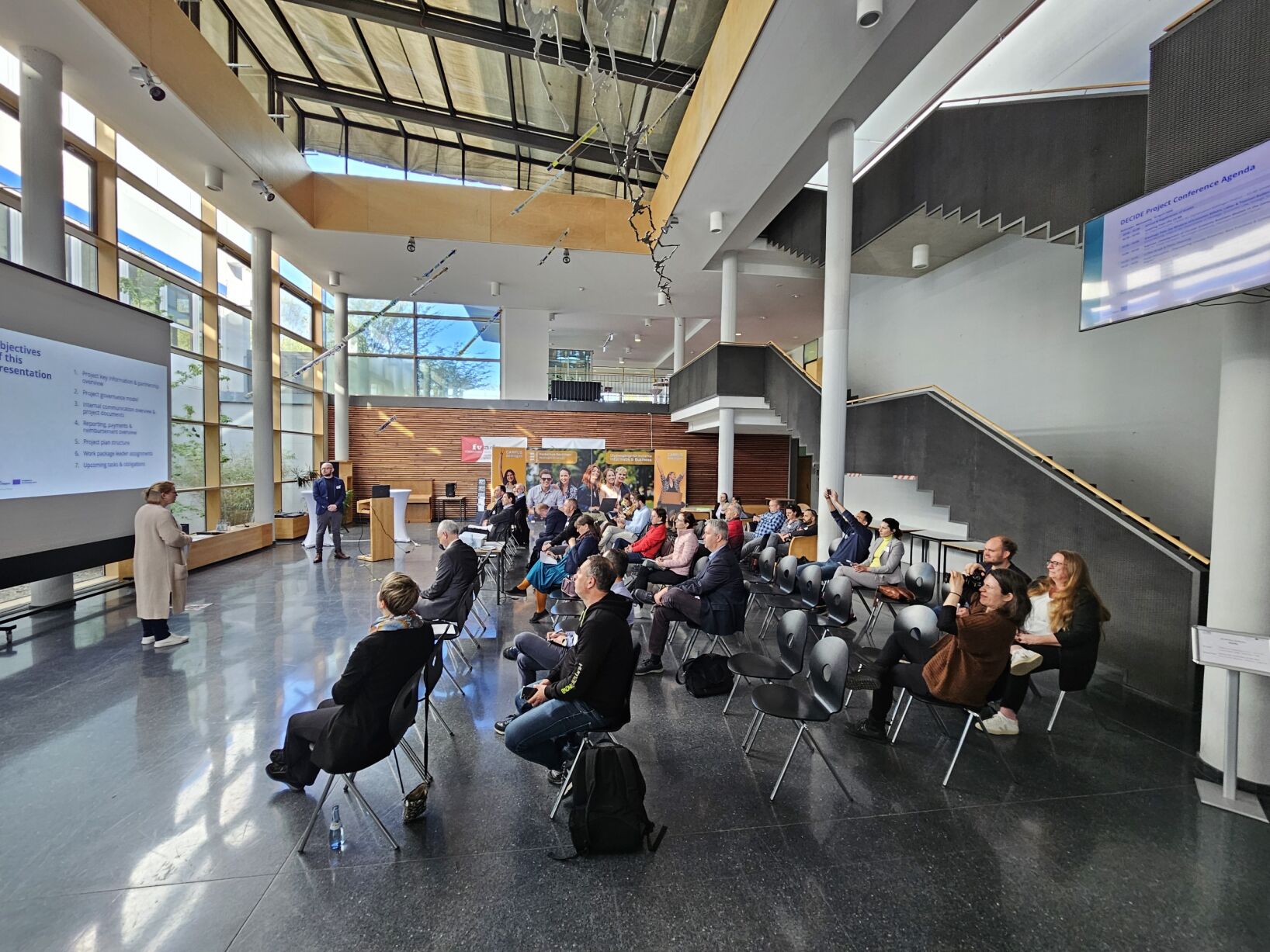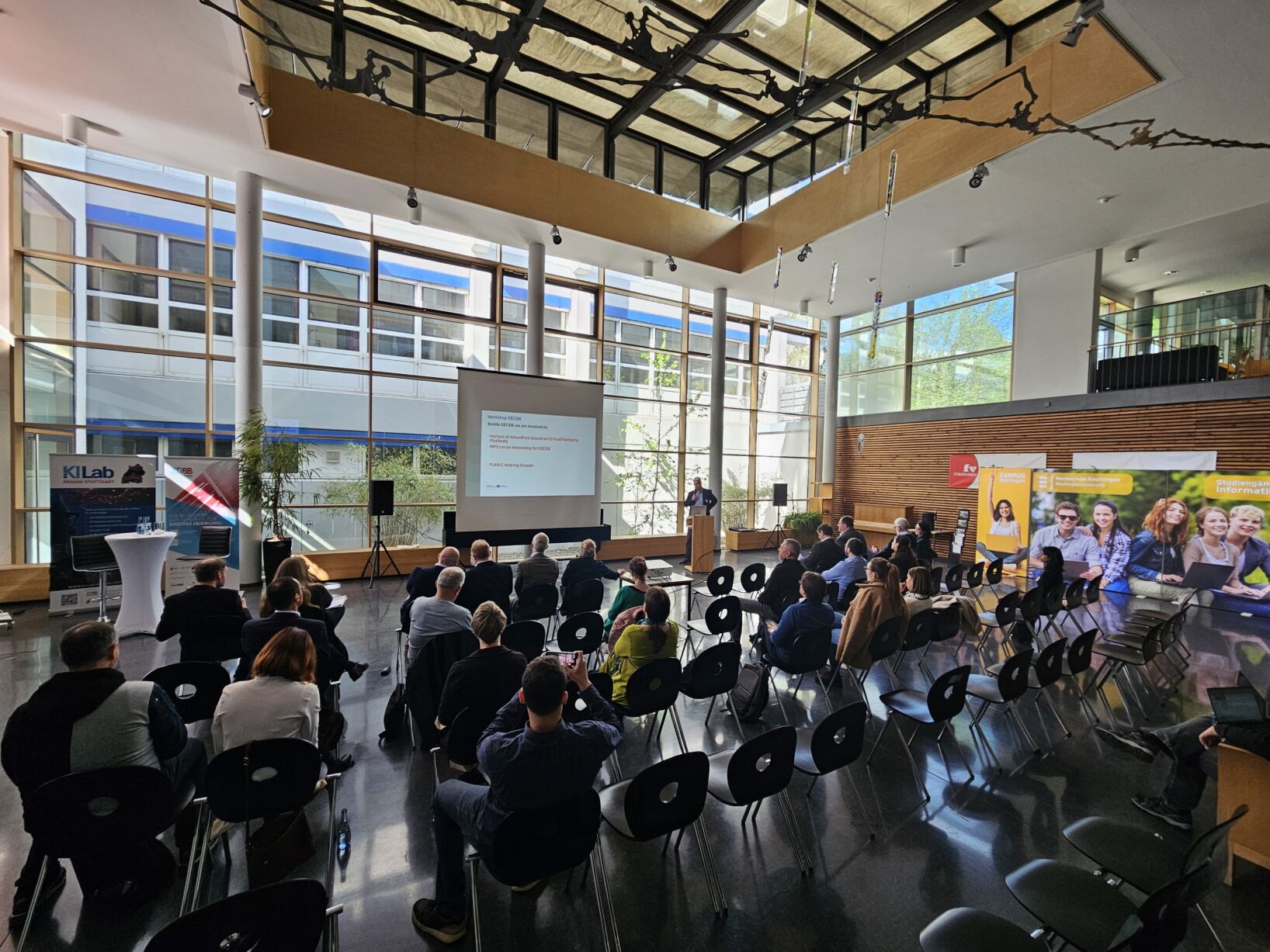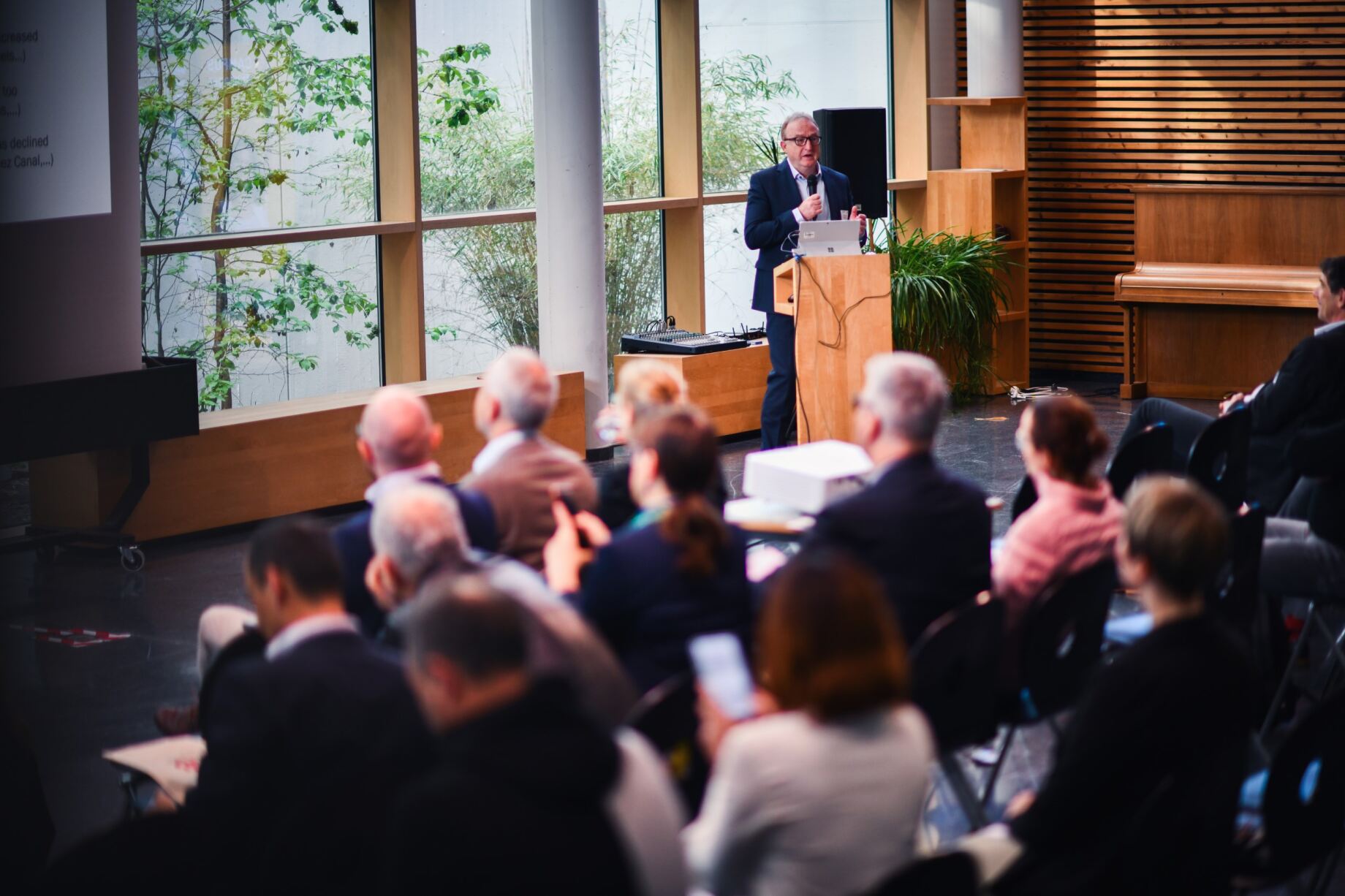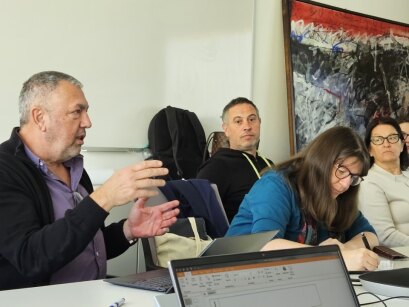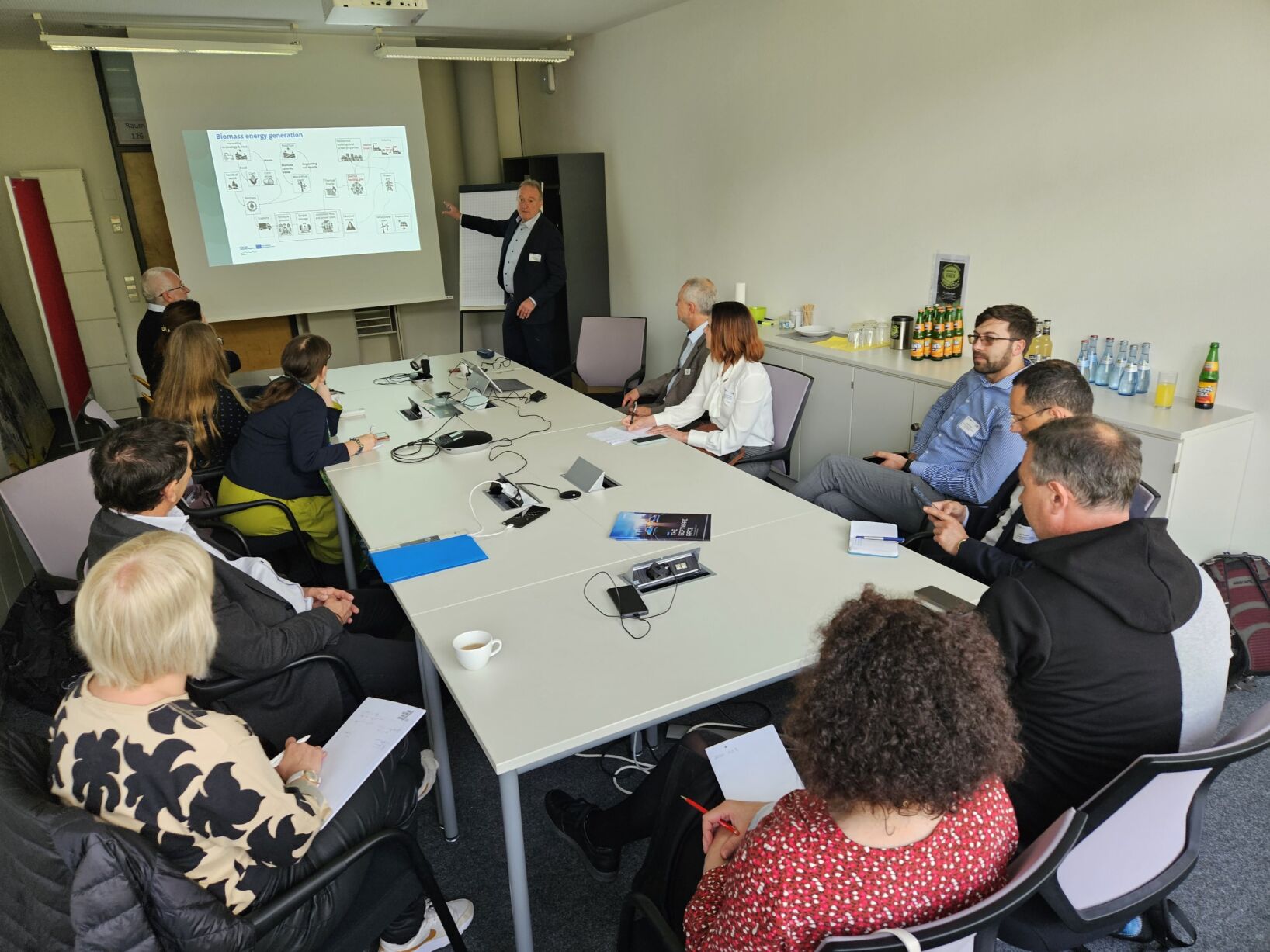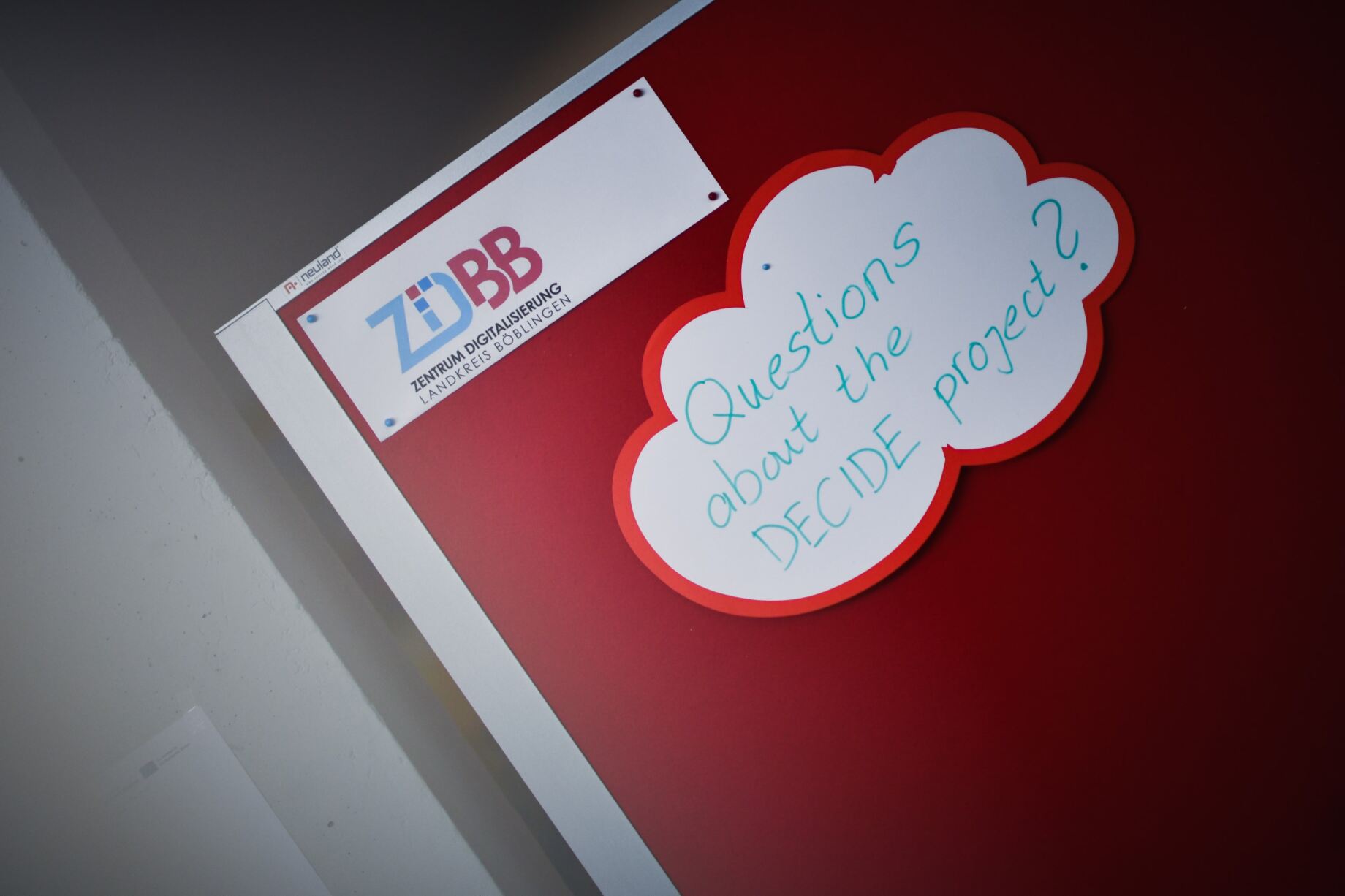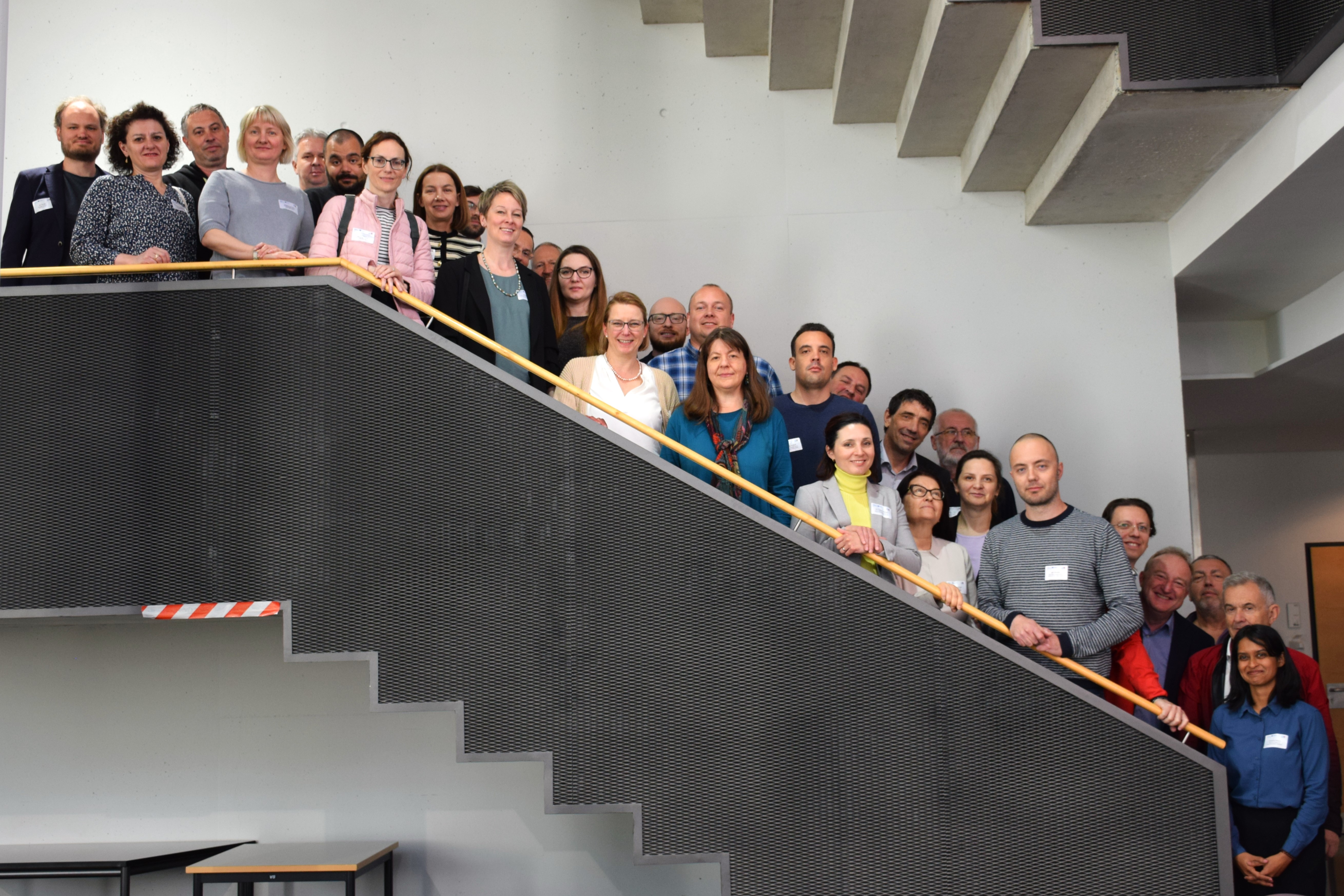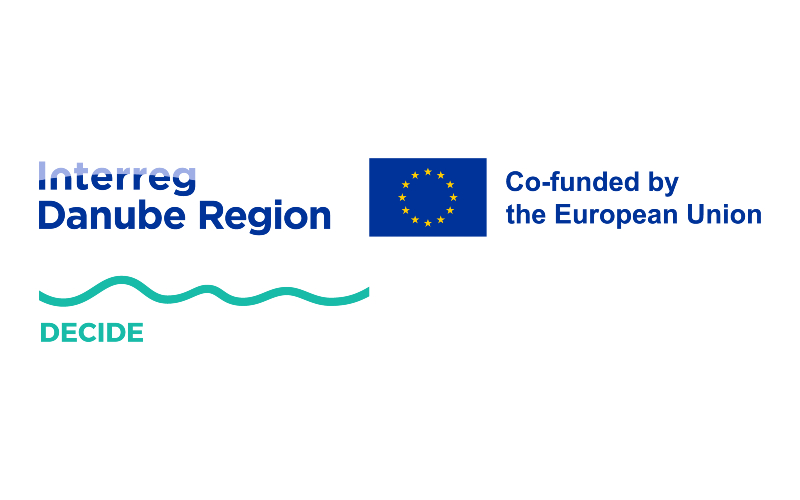The DECIDE project kick-off meeting was held in Germany
The DECIDE project, whose full name is "Digital Services for the Circular Economy", financed by the Interreg Danube Region program, began its implementation on January 1, 2024. The goal of the project, whose consortium consists of as many as sixteen partners from ten countries on the left side of the Danube (region), is to provide small and medium-sized enterprises (SMEs), start-ups and business experts in the Danube region with methods and tools for developing successful business models based on the principles circular economy. These models are key to achieving the goals of The European Green Deal, which make products the norm, which will find ways to transform and transform sectors that require various intensive resources and make the circular economy usable in practice. The DECIDE project is aimed at achieving a greener and more digitally developed EU economy by 2026.
dr. Claus Hoffmann, director of the leading partner Center for Digitization of the Stuttgart Region (ZD.BB), said during the opening speech, "Our goal with the DECIDE project is to combine the two seemingly opposite poles of ecology and economy into promising business models", which explained the motivation of the project consortium.
Prof. Dr. Dieter Hertweck, head of the project team of the Herman Hollerith Center of the University of Reutlingen, spoke about the importance of the successful development of business models for the circular economy and presented the best examples of circular economy practice in the Danube region.
Johannes Jung, head of the Department for Strategy, Business Law, Foreign Trade and Europe at the Ministry of Economy, Labor and Tourism of Baden-Württemberg, emphasized the importance of inclusion in programs that promote cross-border and interregional cooperation, encourage innovation and strengthen the social position of the companies and organizations involved.
Also, as part of the initial meeting, a panel discussion called "Empowering Circular Economy: Best Practices & Synergies in the Danube region" was held, which was attended by representatives of the scientific sector that studies the circular economy and representatives of the real sector that have established successful circular economy models. economy in their activities. The manager of the Social Cooperative Humane Nova, Ivan Božić, Dipl. Wirt. Ing. (FH) Ingo Dreher, director of EvA MiscEnergy GmbH, Prof. dr. Dieter Hertweck from the Herman-Hollerith Center of the University of Reutlingen, Dr. Klaus Hoffman who heads the Böblingen District Digitization Center, Zsolt Keresztúri from Omnipack First Hungarian Packaging Technology and Prof. dr. Tomaž Kern from the University of Maribor.
In addition to the panel discussion, four workshops were also held, where examples of business models based on the principles of the circular economy were discussed in areas, more precisely, activities that deal with textiles, food, smart cities and packaging, i.e. packaging industry.
The DECIDE project, "Digital Services for the Circular Economy", will be financed with almost 3 million euros until the middle of 2026, that is, during those two and a half years, sixteen partners from Germany, Croatia, Austria, Hungary, Slovenia, Romania, Bulgaria , Moldova, Serbia and Bosnia and Herzegovina.
The Transnational Cooperation Program of the Danube Region is designed to achieve the goals of the EU Strategy for the Danube Region. With a budget of around 224 million euros (in the current funding period from 2021 to 2027) from the European Regional Development Fund (ERDF), the initiative promotes concrete forms of cooperation between the Danube regions. Funding priorities for the coming years are clearly defined. The goal is to promote research and innovation, increase the use of renewable energy sources, improve social inclusion and strengthen management for cooperation in the area of the Danube region. So far, 60 projects have been approved, which will receive funds in the amount of over 114.4 million euros.
The project team of partners University of Zagreb, Faculty of Organization and Informatics (UNIZG FOI), consists of the leader prof. Vjeran Strahonja Ph.D., associate professor Martina Tomičić Furjan Ph.D., associate professor Katarina Tomičić-Pupek Ph.D., associate professor Igor Pihir Ph.D., Karlo Nadoveza, M.Econ., Larisa Hrustek, M.Econ, Ana Kutnjak, M.Econ, and Lea Masnec, M.Inf. Members of the project team will work on the realization of specific objective 1 (SO1) "Validated tools and methods for analysis and development of circular economy business models (CEBM)" as a methodological partner who knows the development and management of methods for the circular economy and in the realization of specific objective 2 ( SO2) "High qualitative transferable best particle circular economy business models and database", also as a methodological partner who, together with other partners, will participate in modeling, evaluation and simulation using the tools developed in specific objective 1 and will participate in the development of a high-quality database, which will contain data on companies in regions where comparable value chains will be piloted.
